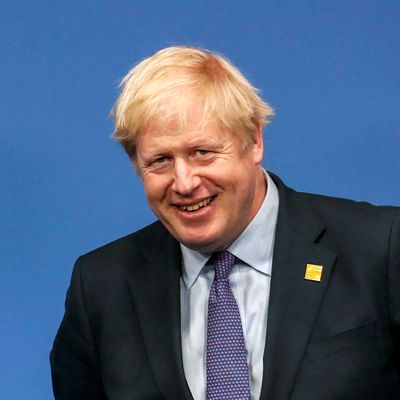
The United Kingdom just sped past the last exit from Brexit. Or so the BBC’s (historically, quite accurate) exit poll from today’s British election suggests.
Conservative Prime Minister Boris Johnson called for the early election with the aim of winning a large Tory parliamentary majority, and thus, clearing the way for Britain’s departure from the European Union. If the BBC’s poll is accurate, Johnson has succeeded beyond virtually anyone’s expectations:
At 368 seats, Conservatives would boast their largest majority since Margaret Thatcher’s in 1987, while Labour’s 191 would be its fewest since 1935.
Several factors seem to have contributed to the Tories’ triumph and Labour’s disaster. One is that Jeremy Corbyn’s robustly populist (and ostensibly popular) economic agenda proved insufficient to prevent pro-Brexit working-class voters in historically Labour-supporting constituencies from defecting to the Conservatives. Labour’s vote share fell across the board in the poll, but declined much less in London and England’s other major cities than it did in the nation’s postindustrial towns. As a result of his party’s performance on Thursday, Corbyn announced that he “would not lead the party in any future general election campaign.”
A second factor was a strong showing from the Scottish National Party. Labour has long relied on strong support in Scotland to secure parliamentary majorities, and the rise of Scottish nationalism has devastated the party in that region. A third contributor to Labour’s struggles, and thus, the Tories’ landslide, was likely Jeremy Corbyn’s personal unpopularity; according to YouGov, the Labour leader entered the election with an approval rating of 21 percent, with 61 percent of Britons holding a negative opinion of him.
The SNP’s strong performance in the poll also portends the likelihood that Scotland will seek a second independence referendum, after voting to remain in the U.K. by 10.6 points in 2014:
Many of the Labour Party’s difficulties in this election appear to have been unavoidable. No Labour leader could have done much to quell the SNP’s rise. And there’s little reason to think that Labour would have been able to secure a hung Parliament by embracing a more emphatically pro-Remain message; the United Kingdom’s election map has a large pro-Brexit bias. But it is plausible that a less unpopular Labour Party leader may have been better able to limit the party’s losses.
Before Thursday’s election, the U.K. Parliament had voted to support Johnson’s Brexit deal in principle, but had yet to fully ratify the plan. (The current “flextension” deadline for withdrawal is January 31.) If the BBC’s poll proves correct, Britain’s divorce papers with the E.U. will soon be signed.






























